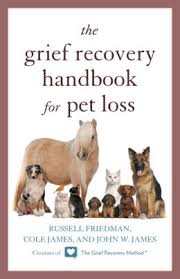

John W. James
Founder of The Grief Recovery Institute®
Co-Author of The Grief Recovery
Handbook & When Children Grieve
Articles & Media
If I Start Crying Will I Be Able To Stop?
Grieving people sometimes hold back their tears based on the fear that if they start crying, they won’t be able to stop. To the best of our knowledge, no one has ever been unable to stop crying. The body has its own emotional thermostat which shuts off what sometimes seems to be an unending supply of tears.
The fear of not being able to stop usually has much more to do with an idea that we will be judged for showing our emotions than any reality connected to crying. It is partially based on the fact that most of us were taught when we were young that sad, painful or negative feelings were to be avoided at all cost, and if we were unable to avoid them, not to show them in public. Growing up, we heard things like: “If you're going to cry, go to your room”; “Knock off that crying or I'll give you a reason to cry”; or, “Laugh and the whole world laughs with you, cry and you cry alone.” That’s just a small sampling of remarks which may have dictated how you react to the grief events that affect your life. With just a few of those comments planted in your belief system, it’s logical that you might be unwilling or unable to show or express the normal and natural painful reactions to the death of someone important to you, and that you could believe that if you started crying you wouldn't be able to stop. [A study indicates that by the time we are 15 years old, we have been subjected to more than 20,000 references indicating that it is not appropriate to feel bad, and if we do, we should not do it in front of others.]
While we’ve never known anyone to be unable to stop crying, we have seen too many people who could not or would not take any actions to deal with their grief because of an inordinate fear of any expression of their sad, painful or negative feelings. If you’ve been a little hard on yourself for not crying, give yourself a break. Trust the fact that you have some feelings about not crying to indicate that you really do have feelings about the person who died. Recovery from grief is achieved by a series of small and correct actions taken by the griever. The first action for you may be just to allow yourself not to cry.
© 2022 John W. James and The Grief Recovery Institute®. All rights reserved. For permission to reprint this and other articles please contact The Grief Recovery Institute at [email protected] or by phone, 800-334-7606.
More Articles
-
Two First Ladies — No Feelings, Please!)
Preamble: On March 6, 2016, former first lady Nancy Reagan died. In honor of her life, we thought we'd show how human emotions are often distorted in… Read More »
-
Deaths of Celine Dion’s Husband and Brother Open Questions on Grief
The recent death of Celine Dion’s husband, followed a few days later by the death of her brother, opens questions about how grievers cope. By… Read More »
-
Two Year Tragiversary of the Boston Marathon Bombings
Wednesday, April 15th, 2015 marks the second “tragiversary” of the Boston Marathon Bombings which killed three innocent people and injured 254… Read More »
-
The Art of Condolence
When an acquaintance has lost a loved one, it can be difficult to know what to say or do. Here’s some guidance on offering sympathy with grace.… Read More »
-
The 4th of July—Another Reminder of Those Who Are No Longer Here
The common bond that connects all holiday celebrations is that they tend to be family-oriented events. Whether the holiday commemorates religious… Read More »
-
The Boston Marathon Bombing, The Aftermath: Loss of Life, Loss of Safety, Loss of Trust, and Loss of Innocence
April 15, 2013, the date of the Boston Marathon bombing, joins the list of dates we’d rather not remember, but we can’t forget. It takes its sad… Read More »
-
Post-Holiday, Grief-Related Blues!
Many people are rightfully concerned about the powerful impact the end-of-year Holidays can have on their friends who've recently experienced the… Read More »
-
In the wake of the recent deaths of Robin Williams and Joan Rivers, this preiviously published article has good advice for all.
Today I feel compelled to write about a personal loss, that just happens to be one of the national obituaries currently featured on the home page of… Read More »
-
Newtown, Connecticut—Our Grief, Because We Are The Family Of Humankind
Certain events have the power to propel us into an emotional numbness, as if a hidden thermostat inside our hearts shuts us off. The pain is too much… Read More »
-
Dealing with Grief During the Holidays
Dealing with Grief During the Holidays While there are other critical dates and times that affect grieving people, the holiday season is the biggest… Read More »
-
Veterans Day—Lest We Forget
In its day, World War One was called "The War to End All Wars." Sadly, it wasn't. WW I officially ended on the eleventh hour of the eleventh day… Read More »
-
We Never Forget The Important People In Our Lives.
We recently received a note from a woman named Linda, who had a child die, and who interacts with other parents who’ve also experienced the death… Read More »
-
On Crying—Part Two
In Crying—Part One, we focused on the idea that it can be dangerous and counterproductive to attach our personal ideas and beliefs to how other… Read More »
-
On Crying—Part One
Almost everyone has some questions and confusion about crying. How much crying is enough? If I start crying, will I be able to stop? Do I have to… Read More »
-
9/11: The Aftermath, Loss of Life, Loss of Safety, Loss of Trust, and Loss of Innocence
By Russell FriedmanSeptember 11, 2001 now lives in our language in the same emotional way as December 7, 1941 and November 22, 1963. Nearly everyone… Read More »
-
Am I Going Crazy?—An all-too frequent question from grievers.
“Since my mother’s death, I’ve had the experience of being in one room, deciding to go to another room to do something, and when I get there, I… Read More »
-
Father’s Day 2016 - My Dad, Babe Ruth, and the Ball That’s Still in Orbit
In the kind of emotional reviews our minds and hearts make on chronicling days like Father’s Day, we often discover a level of appreciation that… Read More »
-
Memorial Day, 150 Years Later. Lest We Forget!
Memorial Day as we know it today began as Decoration Day in 1866, in upstate New York, after the cessation of the Civil War. First conceived as an… Read More »
-
Mother’s Day! Remind Me—Remind Me Not—Remind Me
In mid-April there are two things you can count on in the United States. One is the due date for filing your tax return. The other is the arrival of… Read More »
-
BECAUSE WE ARE THE FAMILY OF HUMANKIND
BECAUSE WE ARE THE FAMILY OF HUMANKIND [March 11, 2011]At 11:15 PM on March 10th, 2011, my heart was burning and my stomach was churning. I was… Read More »
-
Am I Paranoid, Or Are People Really Avoiding Me?
The simple answer to the question posed in the title of this article is, “No, you’re not paranoid, people really may be avoiding you.” Even… Read More »
-
Valentine’s Day—For Many, The Most Painful Holiday
The traditional Holiday Season begins around Halloween, continues through Thanksgiving, crests with Christmas and Hanukkah, and ends with New… Read More »
-
Our Reaction to The Tucson Tragedy – Because We Are the Family of Humankind!
Within a two year span, from February 1, 2003 to December 26, 2004, we used the title “Because We Are the Family of Humankind!” for articles we… Read More »
-
Uh-oh, it’s that time again. Grief and the holidays
Many Grievers Wish They Could Skip The Holidays And Jump From Late October To Mid-January The holidays are approaching. A joyous time. A festive time… Read More »
-
Is It Ever Too Soon To Recover?
Conflicting opinions from a wide variety of sources confuse the question of when to begin a process of completing what was left emotionally… Read More »
-
Why Won’t Anyone Let Me Feel Sad?
If we were forced to quantify the problems grieving people encounter, there’s no doubt the number one offense they must confront is being told that… Read More »
-
Six Major Myths – The Short Version
There are six major myths about grief that are so close to universal that nearly everyone can relate to them. This is true not only for those of us… Read More »
-
Do I Have to Cry To Grieve?
"My father died recently. I have been very sad, but I have not cried. Do I have to cry to grieve?"That is a question we get all the time from people… Read More »
-
When Your Heart Is Broken, Your Head Doesn’t Work Right And Your Spirit May Not Soar
For most people, the immediate response to the death of someone important to them is a sense of numbness. After that initial numbness wears off, the… Read More »
-
If I Start Crying Will I Be Able To Stop?
Grieving people sometimes hold back their tears based on the fear that if they start crying, they won’t be able to stop. To the best of our… Read More »
-
Time Doesn't Heal - Actions Do
I have heard that it takes two years to get over the death of a loved one, five years to get over the death of a parent, and you never get over the… Read More »
-
I’m Fine And Other Lies!!!
Approximately 20% of your ability to communicate is verbal, leaving about 80% as non-verbal. Non-verbal communication includes tone of voice as well… Read More »
-
Normal and Natural reactions to the death of someone important to you.
Grief is the wide range of normal and natural reactions to the death of someone important to you. The seven most common reactions are: … Read More »
Find Local Support
Workshops & Training Schedule
The Grief Recovery Institute ® offers Certification Training programs for those who wish to help grievers.
April 2017
Indianapolis, IN - April 7-10, 2017Princeton, NJ - April 7-10, 2017
Reading, Berkshire, England - April 21-24, '17
Denver, CO - April 21-24, 2017
Vancouver, BC, Canada - Apr 28-May 1,'17
San Francisco, CA - Apr 28-May 1,'17
May 2017
Seattle, WA - May 5-8, 2017Dallas, TX - May 5-8, 2017
Milwaukee, WI - May 19-22, 2017
Torquay, Devon, England - May 19-22, '17
Regina, SK, Canada - May 19-22,'17
Los Angeles, CA - May 19-22, 2017













